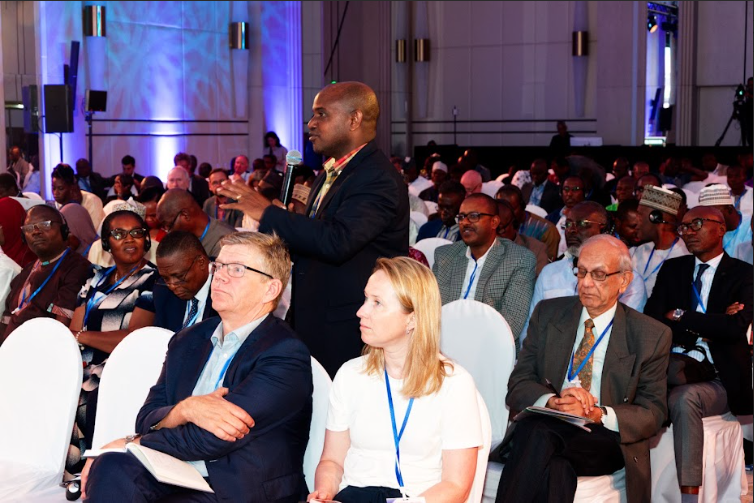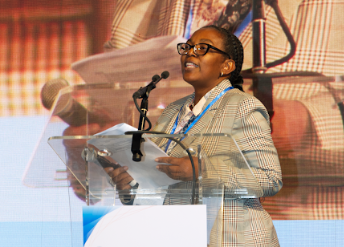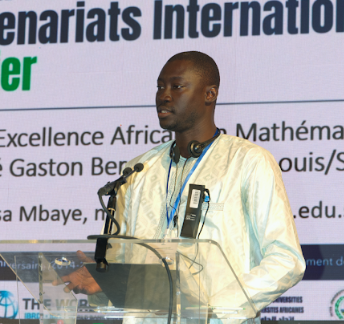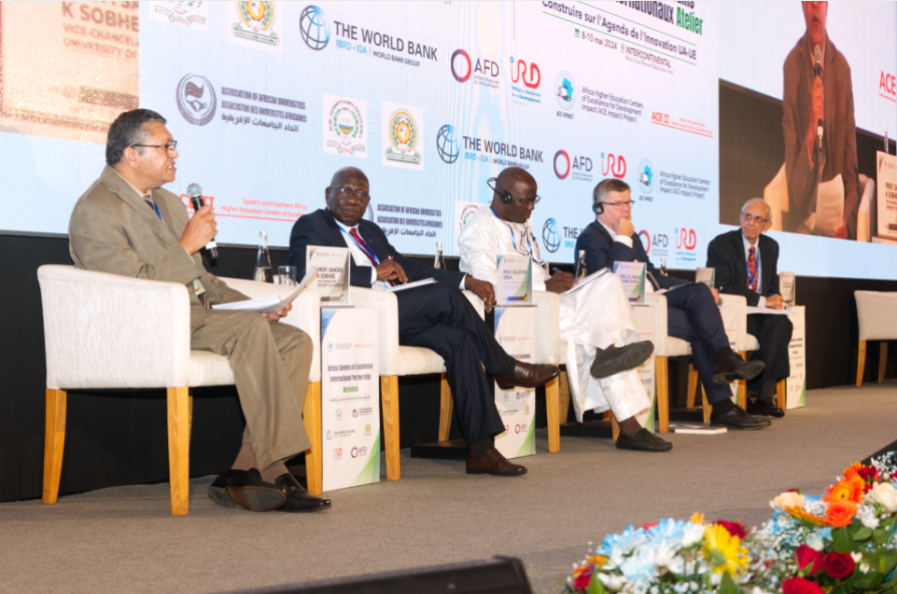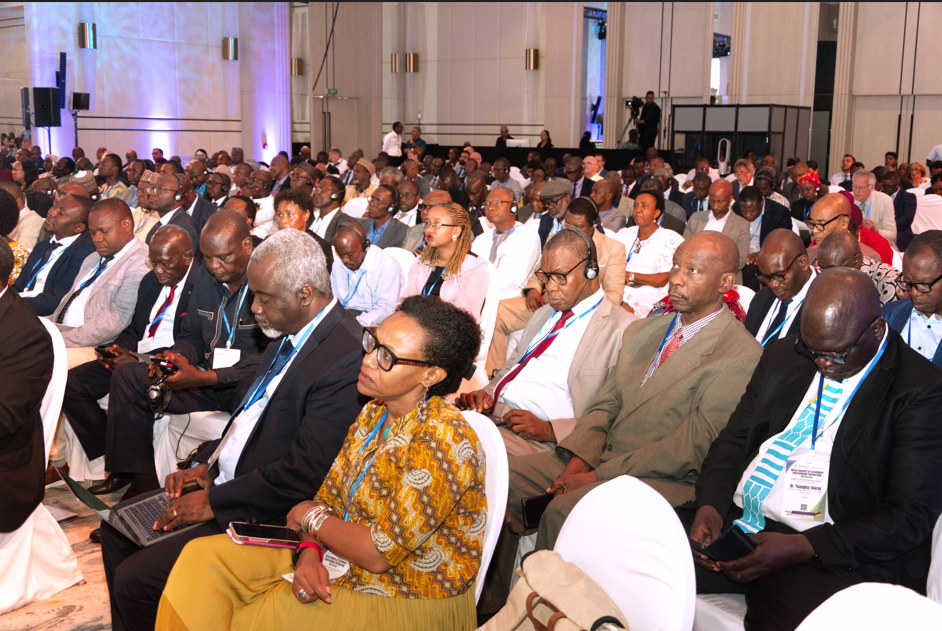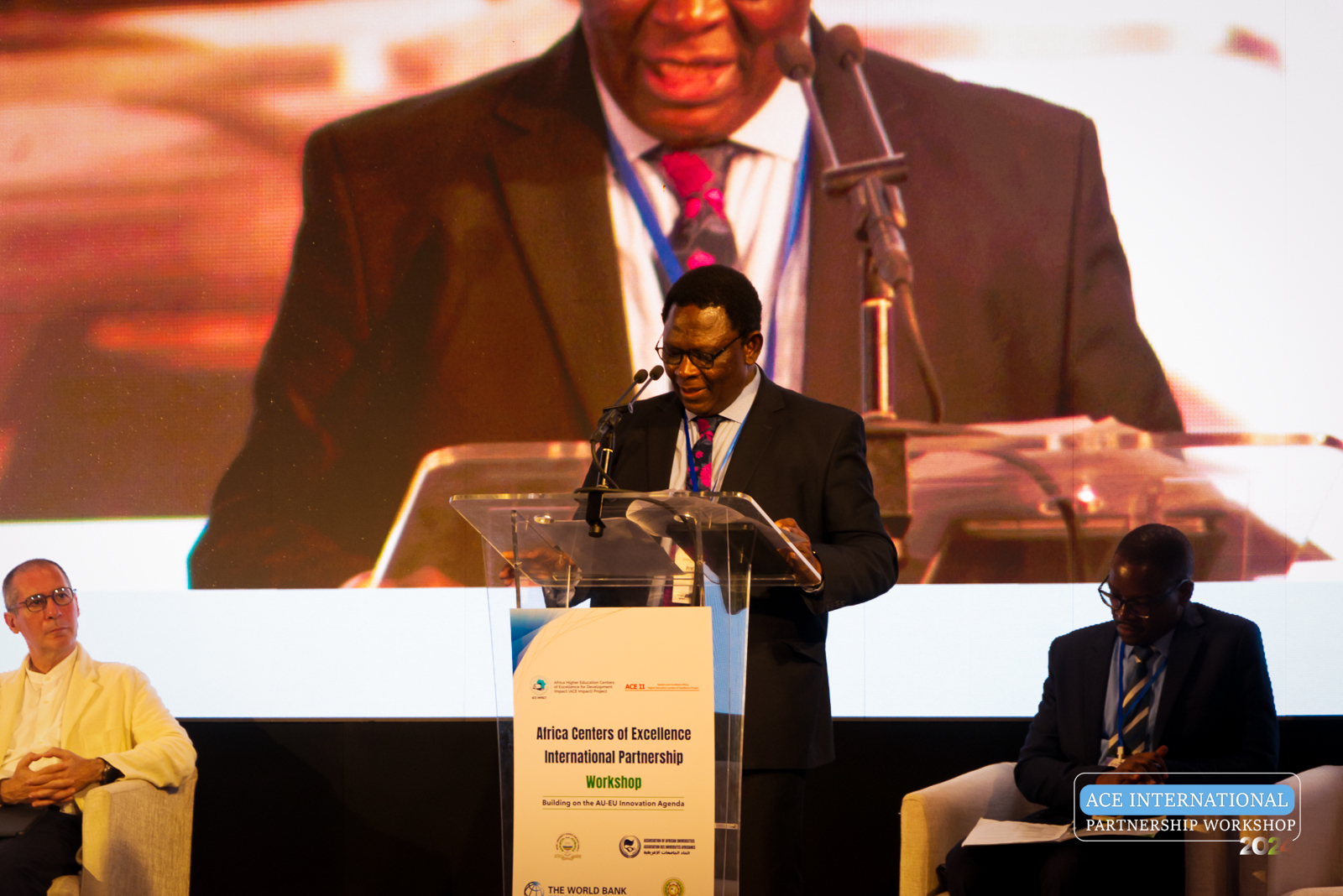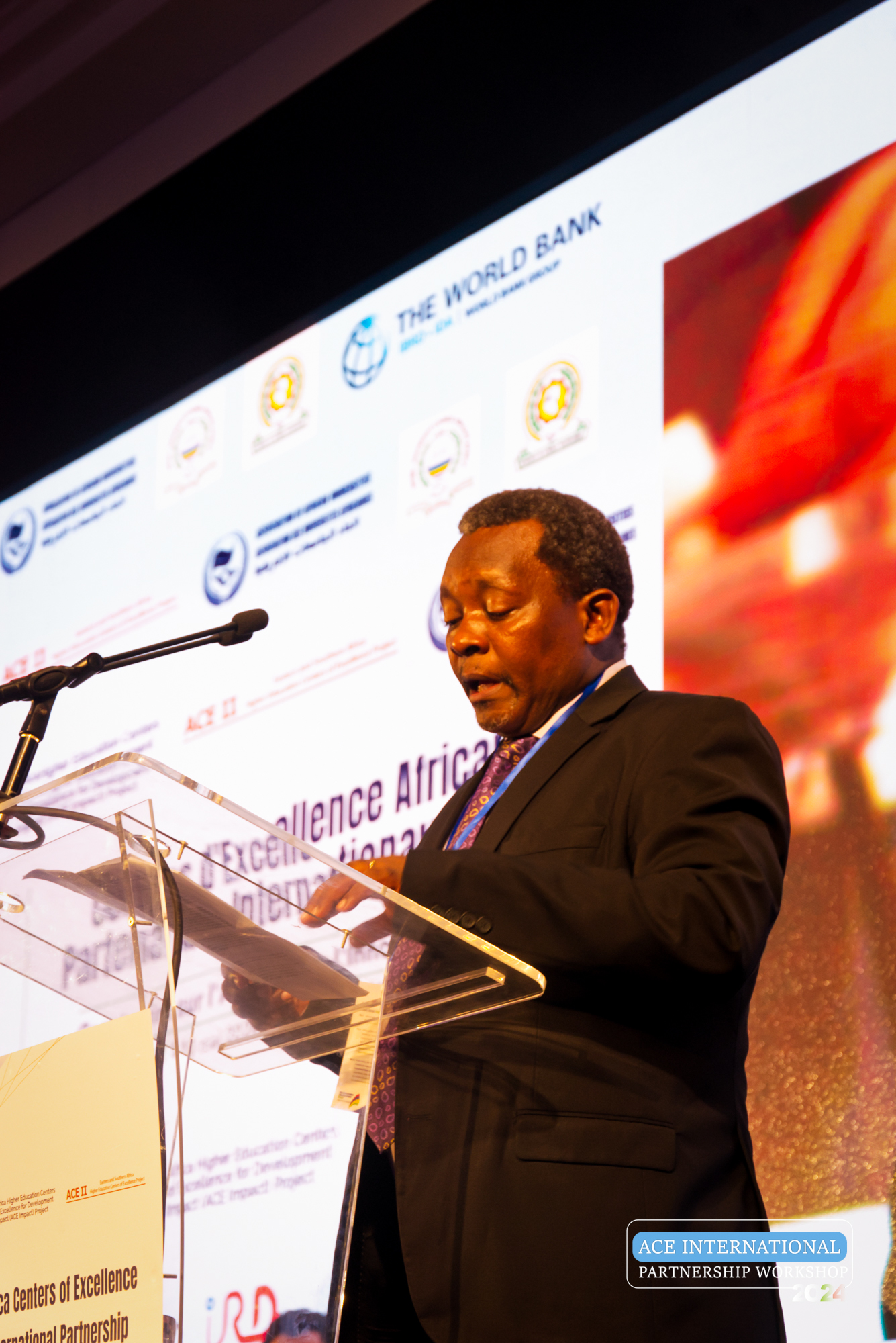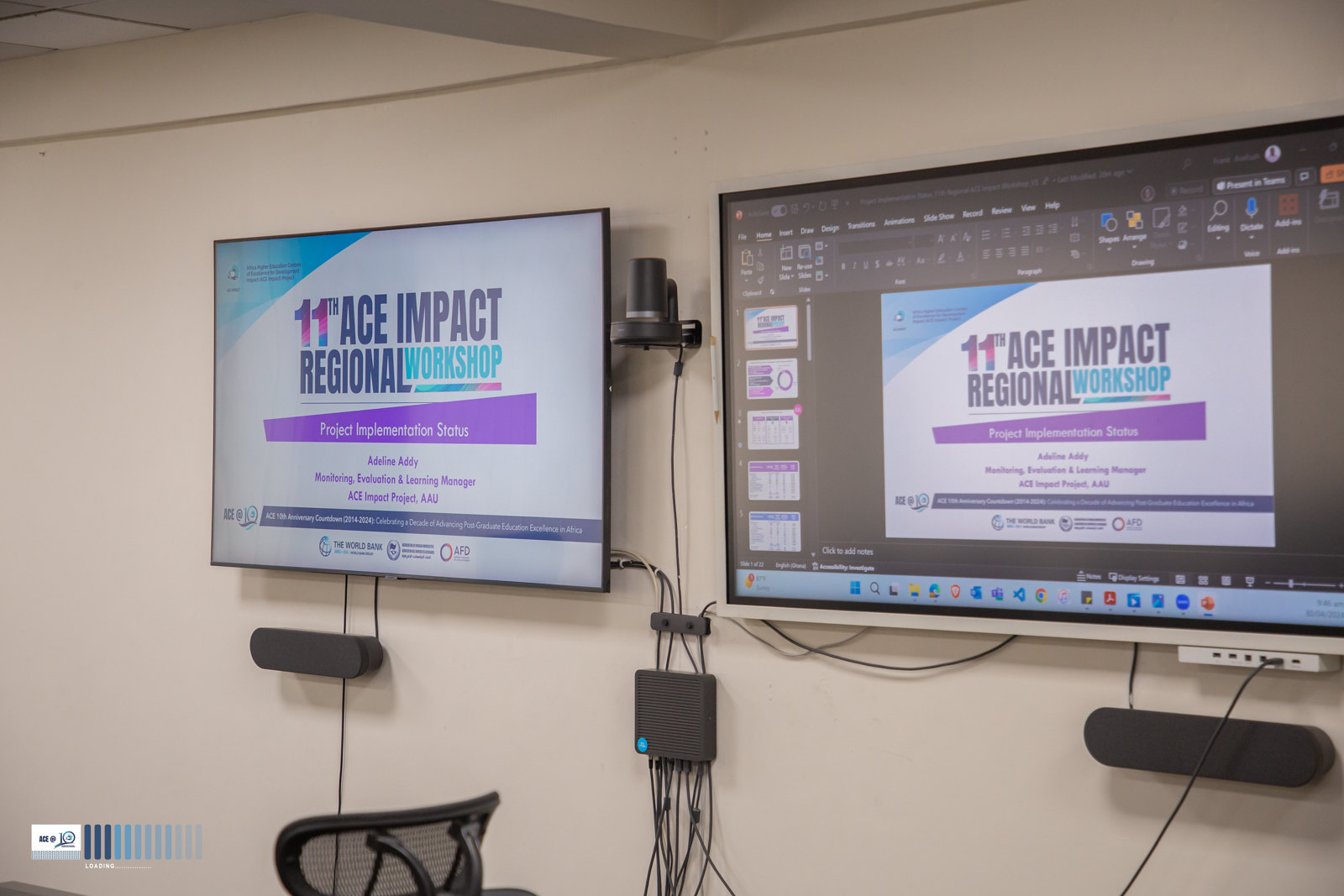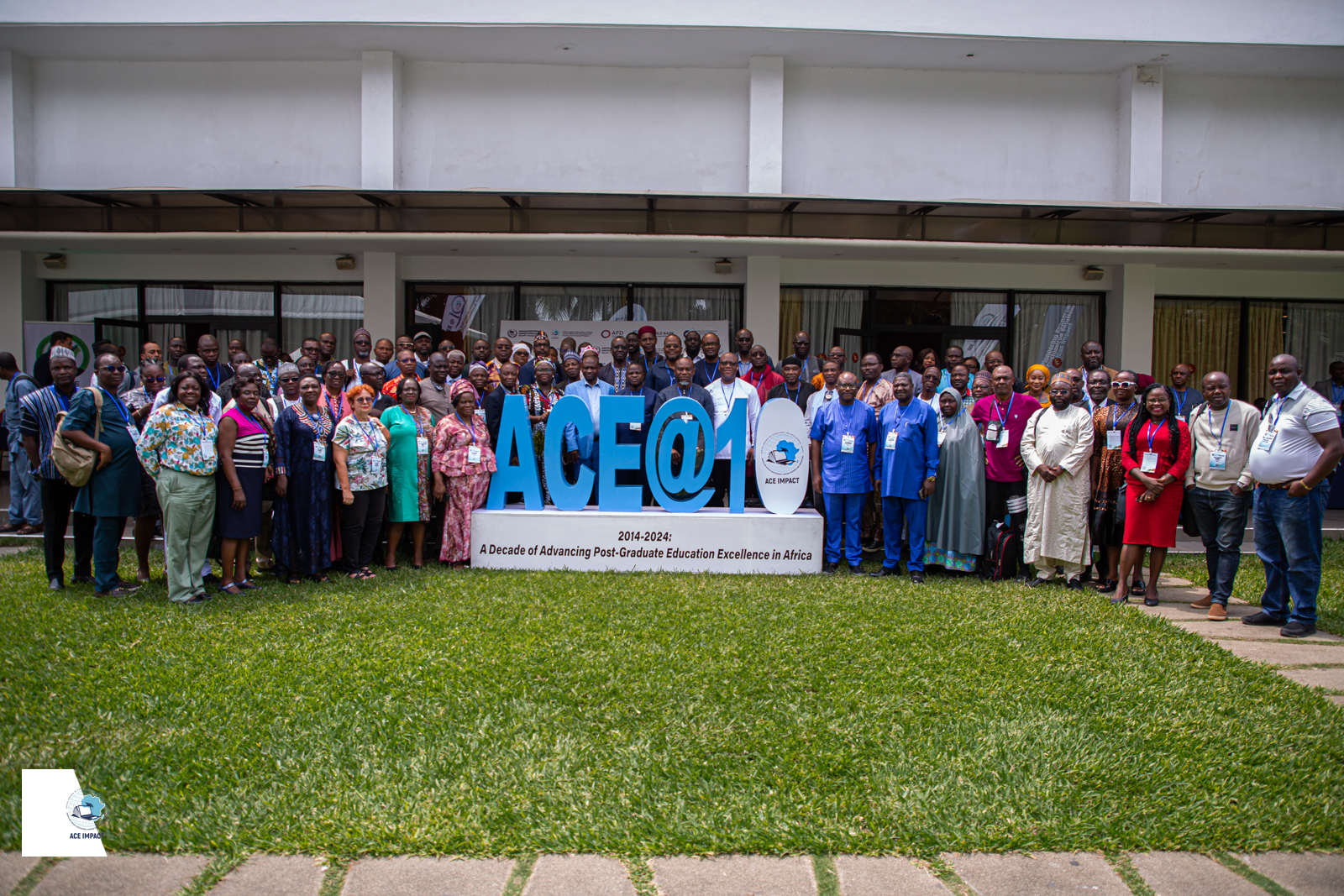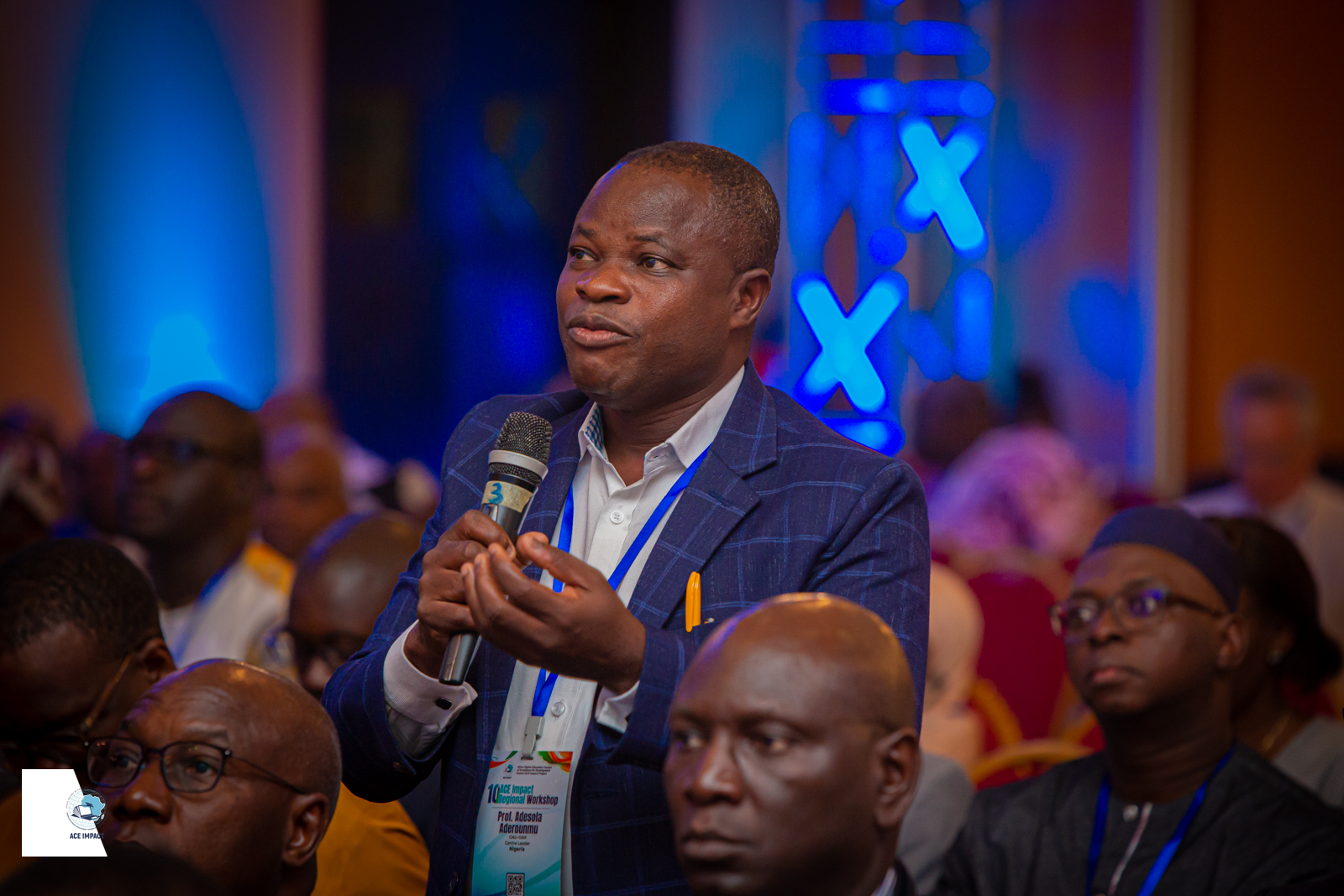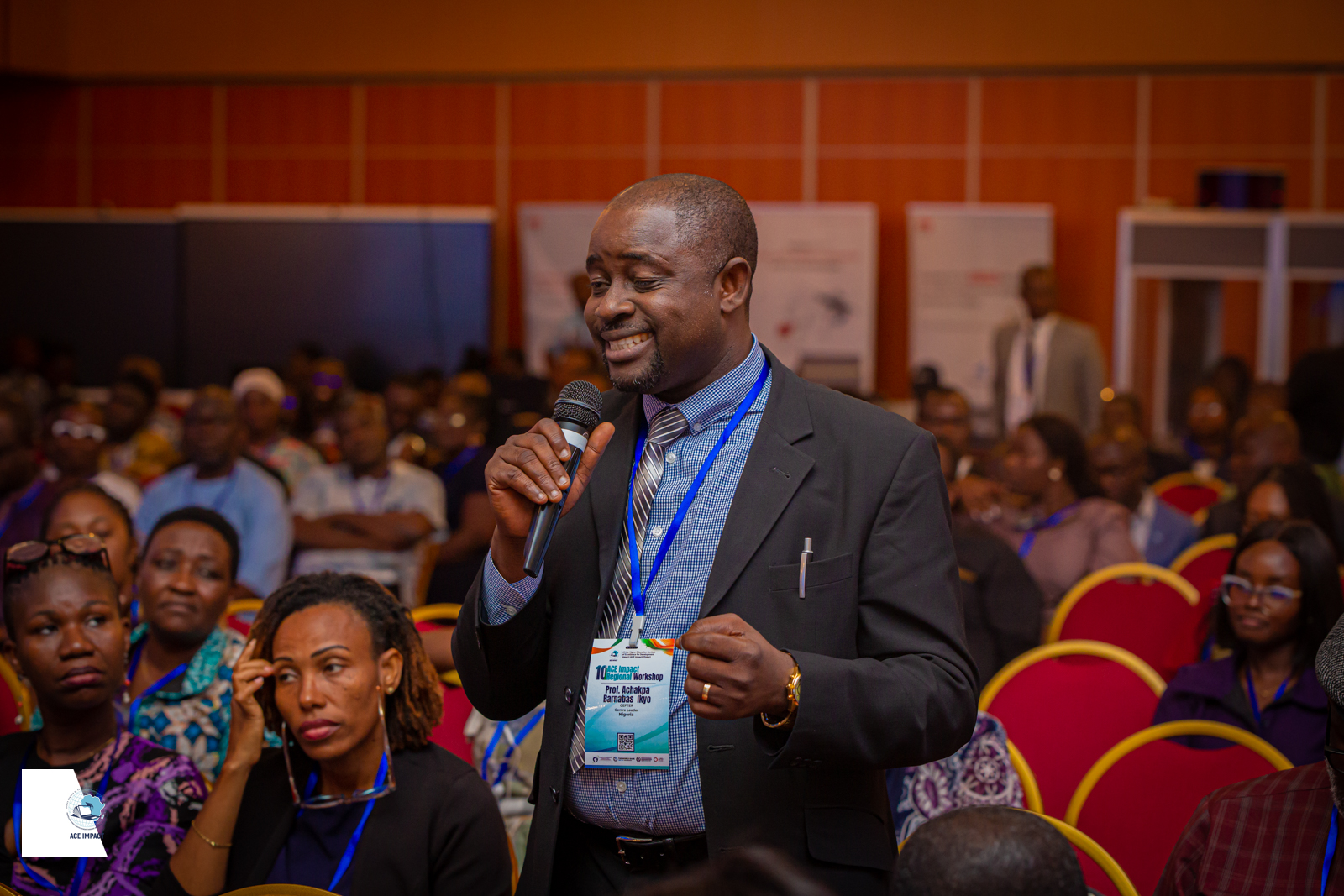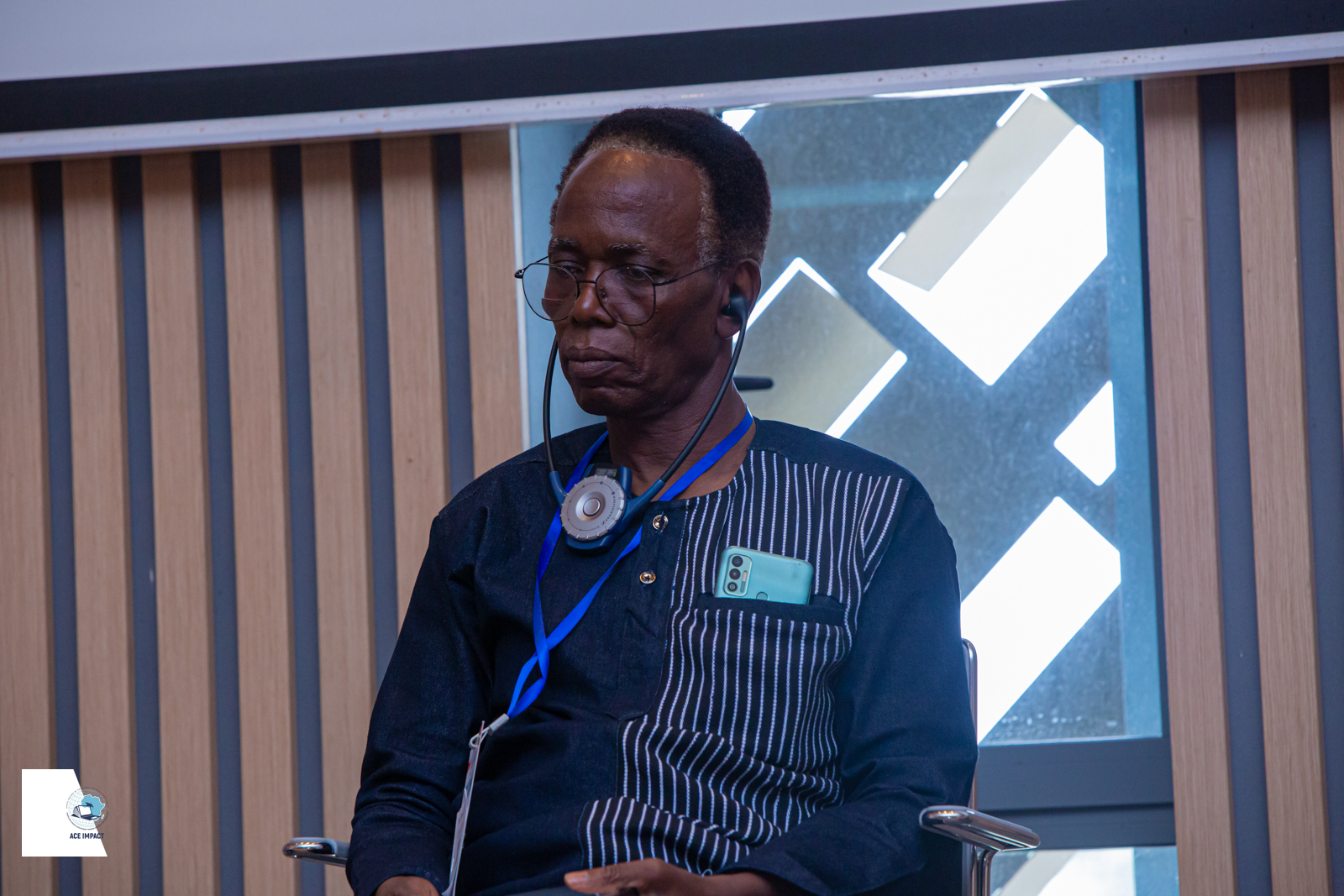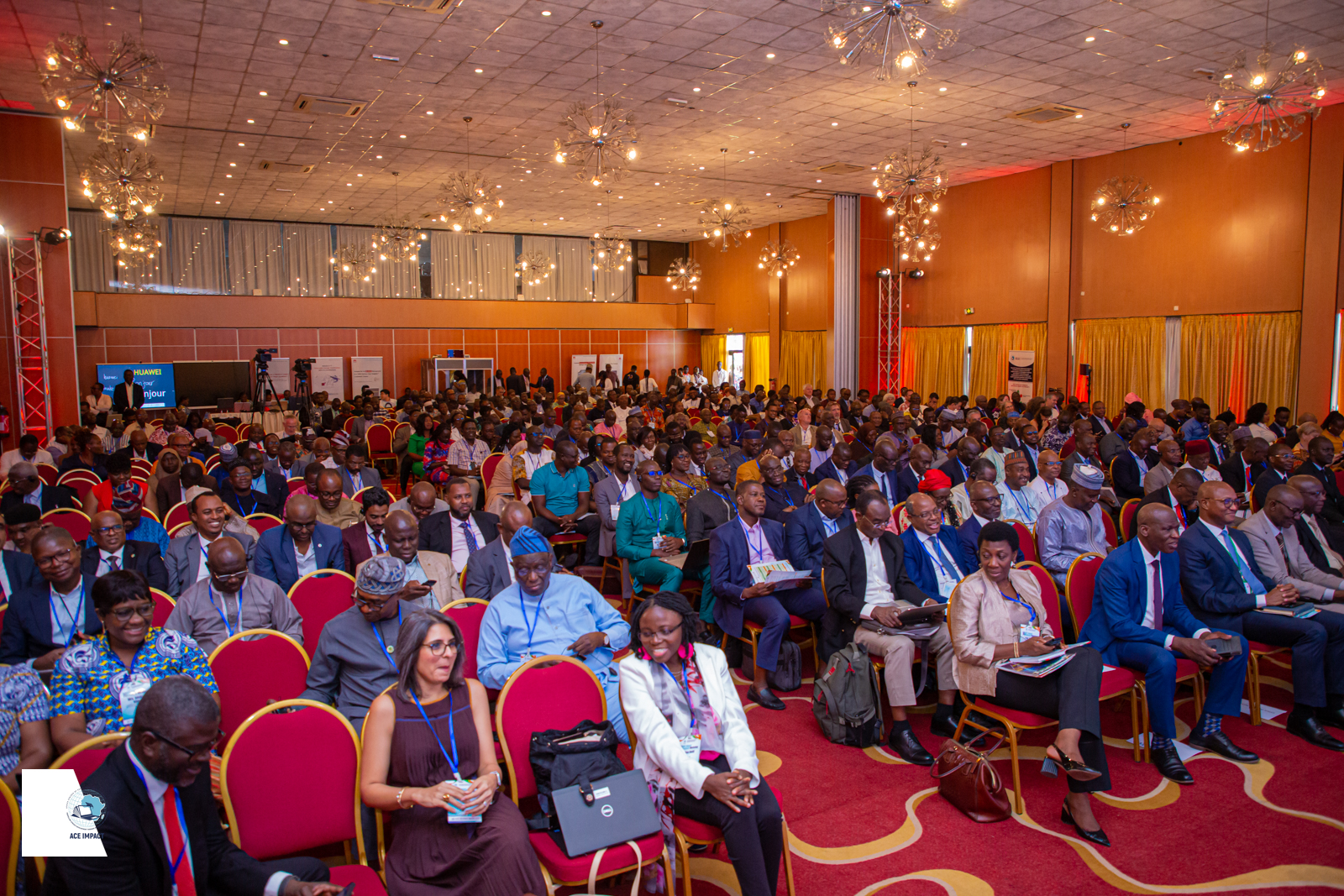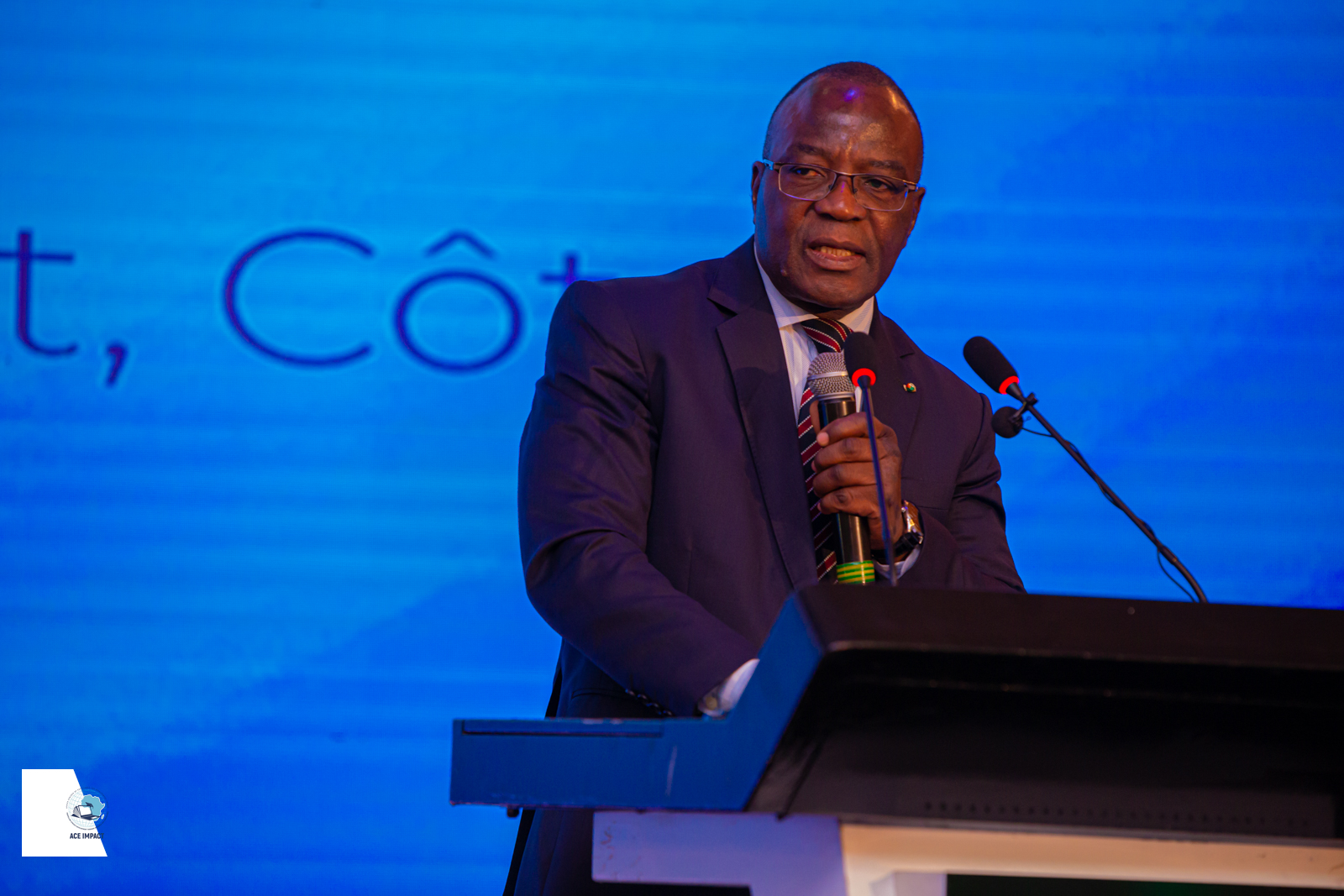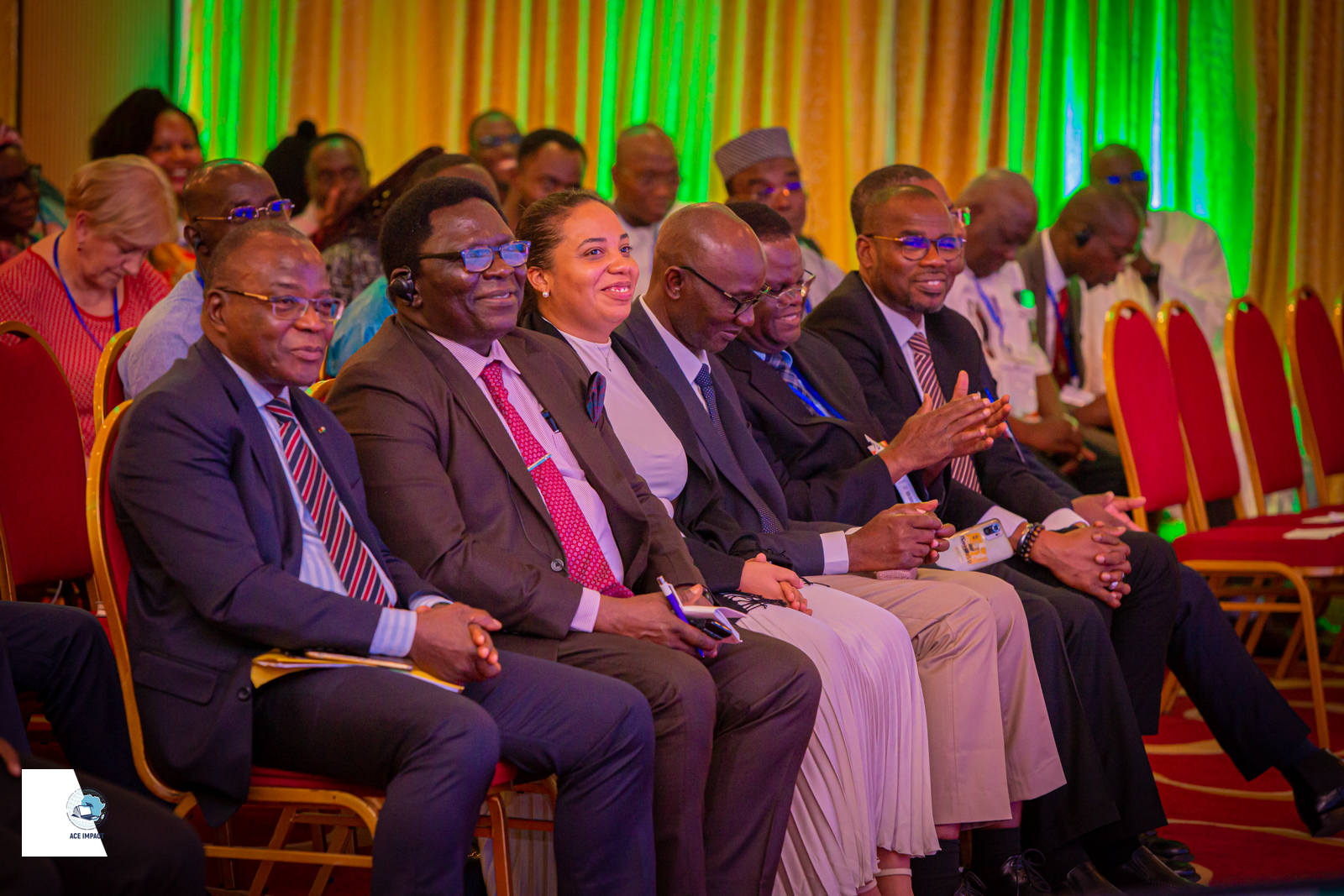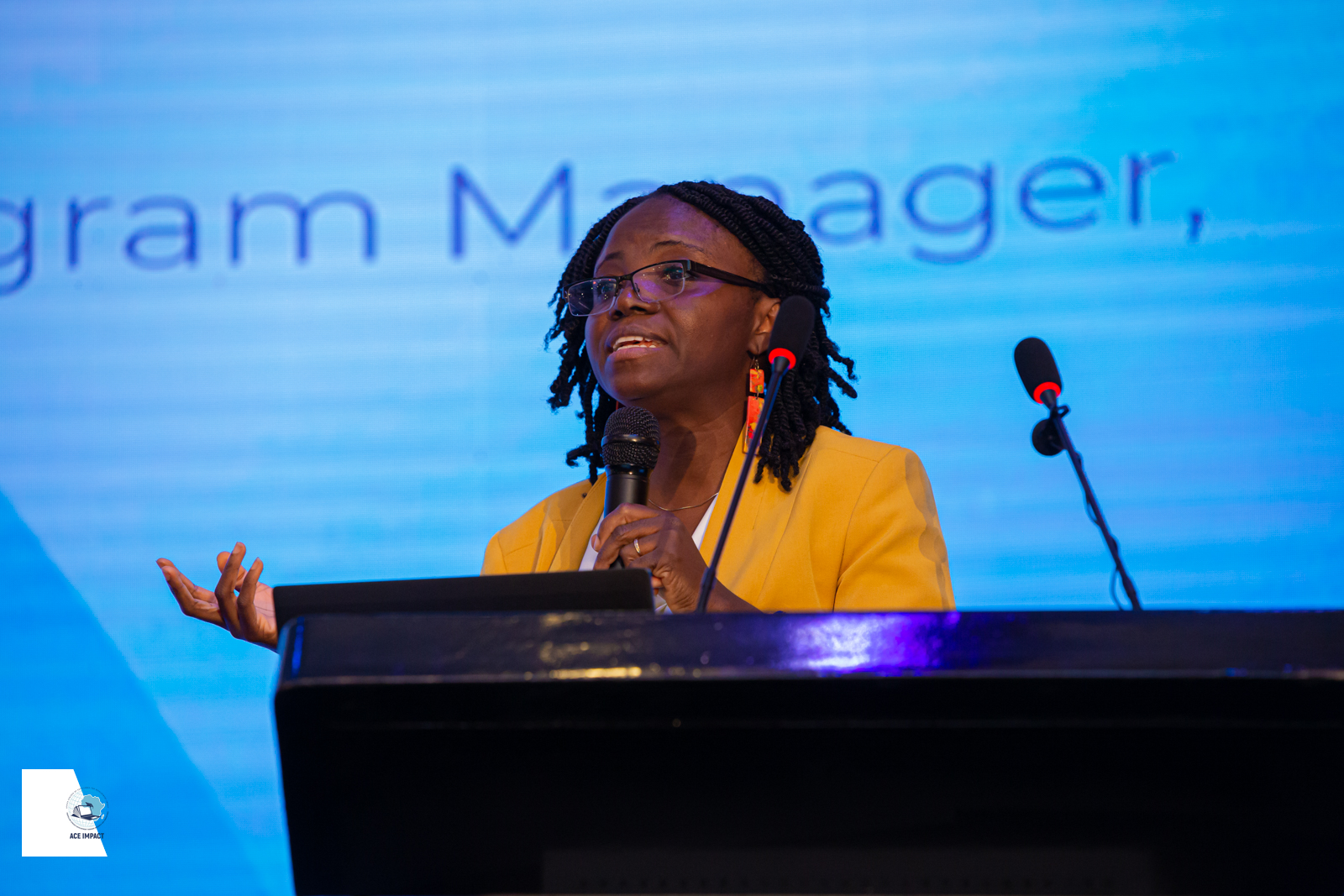Graduate Tracer Study Reveals Africa Centres of Excellence Graduates Make Giant Strides
83% of Graduates Gainfully Employed
From 8-10 May 2024 24, a crucial gathering took place in Balaclava, Mauritius, involving stakeholders and (prospective) partners of the Africa Centres of Excellence (ACE) initiative who convened to respond to the urgent call for regional and cross-continental coordination and collaboration in addressing global challenges related to public health, climate change, food security, energy, water, and other urgent developmental concerns.
Dubbed the Africa Centres of Excellence International Partnership Workshop, the three-day event brought together higher education representatives from the World Bank, the French Development Agency, the Association of African Universities, the Inter-University Council for East Africa, the African Union Commission, the European Union, the Africa Centres of Excellence, the European Centres of Excellence, the governments of the participating centres of Excellence, the private sector, and other development agents to deliberate on advancing the 2023 AU-EU Innovation Agenda. During the meeting, the project profiled its impactful journey and critical initiatives over the last ten years.
Moderated by Prof. Kouami Kokou, a member of the ACE Impact Project Steering Committee from Togo, Plenary Session VI of the workshop was devoted to disseminating and discussing the outcomes of a survey undertaken to track the perceived performance, progress, and impact of ACE graduates, especially in the areas of research, innovation, and entrepreneurship. The survey, titled – ACE Program Graduate Tracer Study, was spearheaded by MyCos Data, an independent Data Survey & Evaluation and Consulting Services Firm based in China, which specialises in higher education management consulting, and the findings were presented by its Vice President of International Partnerships, Kate Wang.
The 76-day survey had a response rate of 52%, with 4,295 out of 8,308 master’s and doctorate graduates participating. These graduates were from 65 of the 80 ACEs. Of the 4,295 total respondents, 3,818 were master’s graduates, while the remaining 477 were doctorate graduates from the ACEs.
Survey Results: Research and Academic Activity
The survey report indicates that the impact of the ACE initiative began manifesting even before its students graduated. According to the report, 68% of master’s graduates got involved in research projects, while 34% had at least one research paper published during their training period. Additionally, after graduating from the Centres of Excellence, 47% continued to engage in research projects, and 25% published at least one research paper.
The research and academic achievements of the ACE program were even more profound at the doctorate level. 80% of doctorate graduates responded to being involved in research projects, while 85% indicated having published research papers during their training under the ACE initiative. Of those whom the ACE model impacted after training, 69% were engaged in research projects, and 74% had research papers published. These achievements were despite mitigating challenges, mostly inadequate access to funding but partly challenges with the accessibility of journals and laboratories, physical environments, faculty expertise, and communication with programme administrators and faculty.
Apart from students and graduates conducting their own research projects during and after the ACE training, at least the doctorate graduates also collaborated with international entities in the form of conferences and projects, which enhanced their research and academic exposure and expanded their worldview beyond the confines of their centres, universities, and countries.
According to the survey report, 77% of the respondent ACE doctorate graduates collaborated in at least one international research conference, with 10% of them participating in more than five of those conferences during their training. Following graduation from the Centres of Excellence, another 64% of the graduates participated in at least one international research conference, with 14% featuring in more than five such conferences. Regarding international research project collaborations, 45% of the ACE doctorate graduates participated in at least one, with 2% participating in more than five during their training and 50% after graduation, with 3% participating in more than five of those international research project collaborations.
Respondents also engaged with the private sector during their PhD studies at the ACEs, including participating in private sector-organized conferences, undertaking internships within private sector organizations, working on joint projects, commissioning research, and receiving additional training from the private sector. They also conducted contract research for the private sector and collaborated with their personnel.
In terms of satisfaction, respondents were generally satisfied with their internships and industry collaboration experiences both on-campus (58%) and off-campus (45%) despite challenges like unhelpful guidance (11%), lack of respect for personal interest (8%), too much academic pressure (7%), difficulty with professional relationships (7%), irrelevance to the study (6%), and insufficient preparation from coursework (6%).
Survey Results: Employment Status and Quality
Besides the remarkable collaborative research and academic achievements, the ACE program also reported high employment rates. According to the report, more than half of ACE graduates found employment in various sectors—private entities, state-owned enterprises, state agencies, research institutions and academia, non-profit organizations, foreign entities, and joint ventures—even before graduation. Again, more than half of the remaining graduates also found jobs within the same year of graduation, with the remaining small percentage (about 15%) getting employed after one year.
Of the 3,818 master’s graduate respondents, 3,169, representing 83%, were gainfully employed during the survey. Again, out of these 3,169 employed ACE masters graduates, 1,648, representing 52%, found jobs before they graduated; another 507 of them, representing 16%, found jobs within the first three months of graduation; 539 (17%) of them within one year of graduation, while the remaining 475, representing 15% got jobs after one year of graduation.
Regarding the employment of PhD graduates, out of the 477 survey respondents, 415, representing 87%, were fully employed during the survey period. Again, out of these 415 employed ACE doctorate graduates, 245, representing 59%, got their jobs before graduating from the ACE programme; 58 (14%) of them within the first three months after graduation; another 58 (14%) of them within the first year after graduation; and the remaining 54 (13%) getting jobs after one year of graduation.
Research Results: Entrepreneurship
Even though more than half of the respondent ACE graduates (53% for master’s and 56% for doctorate) reported being satisfied with their jobs, good percentages also found themselves in entrepreneurship, a critical aspect of the ACE model. For instance, 10% of the respondent ACE masters graduates, and 12% of the respondent ACE doctorate graduates reported being entrepreneurs. Eight out of every 10 of these entrepreneurs (82% for master’s and 77% for doctorate) are working in for-profit sectors, while the remaining two of the 10 entrepreneurs (18% for master’s and 23% for doctorate) are working in non-for-profit organizations, all adding values to themselves and their families and filling developmental gaps through their research areas, sectors, and societies, thanks to the ACE program.
Moreover, almost all respondent ACE graduate entrepreneurs (94% for master’s and 98% for doctorate) reported being influenced by the ACE model, with more than half in each case reporting a very significant impact of ACE. The aspects of the ACE education that impacted its graduates to become entrepreneurs range from formal training through coursework (69% for master’s and 58% for doctorate), interactions and collaborations with the private sector (45% for master’s and 53% for doctorate), and impact from degree programme mentors (36% master’s and 44% for doctorate).
Student Satisfaction, Model Usefulness and Influence, and Alumni Recommendations
Not only did respondents find teaching and learning under the ACE educational model satisfactory, but they also found it very important to their present academic and professional pursuits. While 88% of respondent master’s graduates and 89% of the respondent doctorate graduates were satisfied with the ACE teaching and learning model they experienced, 98% of each of the two groupings found the ACE model useful in their current situations.
Almost all the ACE graduate respondents were satisfied with the ACE model and would recommend it to others. When asked about their satisfaction rates, 90% of master’s graduates and 93% of doctorate graduates responded that they were satisfied with their experiences during the training, and 95% each of master’s and doctorate respondents answered they would recommend ACE to others and recommend or recruit its products for available jobs.
Apart from their desire to be invited to engage ACE alumni through recommendations and job openings, respondents would also want to be engaged in multiple other levels, such as being invited to participate in ACE events, facilitate university-industry collaboration, raise funds or donate to the programme, and provide feedback, such as through similar surveys.
Survey Recommendations
Ms. Wang rated the 52% survey response rate as relatively high and the findings very credible and reliable and thus commended the respondents for their cooperation and congratulated the ACE program stakeholders on their achievements. She was also optimistic these rates and achievements could further be enhanced in the future and thus recommended the following for stakeholder consideration:
- Encouraging more ACEs and graduates to participate in future surveys.
- Streamlining the data collection process and reducing errors of repetition and inaccurate information.
- Engaging graduates as soon as they leave the programme and from time to time for a stronger relationship.
- Clearly defining what it means to benefit from the ACE programme to students before they graduate.
MyCos Data is expected to submit the full survey report to its commissioners—the World Bank and the Association of African Universities—within the next few weeks, following the International Partnership Workshop hosted in Mauritius in May 2024.
